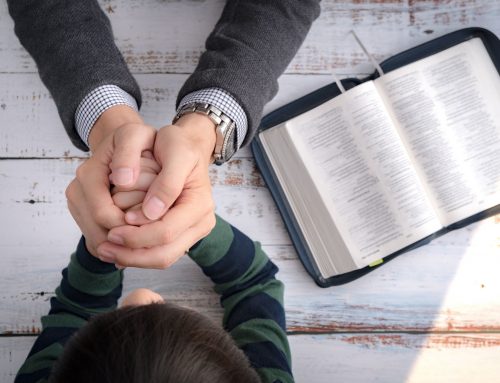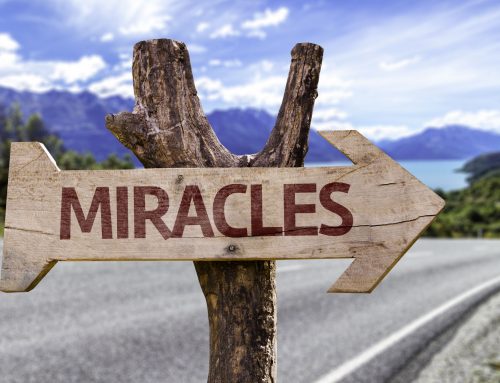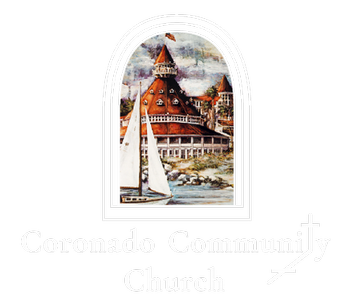Matthew 9:9-26
A sermon by Pastor Eric Smith
June 11, 2023
A sermon by Pastor Eric Smith
June 11, 2023
While Karen and I were visiting family in the town of Orleans on Cape Cod we heard church bells. It was no recorded carillon amplified through speakers in a steeple. These were real bells pealing. Then I learned that the church is home to a group called, the Community of Jesus. With a name like that I couldn’t stay away, so we went to church there on Sunday morning. It was beautiful. The setting was classic yet contemporary – everything in the sanctuary tied 2000 years of church history to today. One example: the center aisle, perhaps 150 feet long and ten feet wide was mosaic. A docent told us that church members went to the city of Ravenna in Italy and spent two years creating the vision of the mosaic and then supervising the creation of the tiles. The church folks brought the tiles back in sections and then laid the individual Ravenna tiles in the sanctuary. Then the music… the music was celestial.
After church we took a tour that ended at the bookstore, which they kept open for us. I was curious to see what kind of theology the community embraced. It turned out, happily, to be eclectic. Some conservative writers, some progressive writers, and a lot in between.
I found a book written by Pierre Teilhard de Chardin. He is the author of one of my favorite descriptions of spirituality
We are not human beings having a spiritual experience
We are spiritual beings having a human experience
He was French, a Jesuit priest, scientist, paleontologist, theologian, philosopher and teacher. He died in 1955 – a man ahead of his time. The title of this work is Christianity and Evolution, no one else was writing about that idea then.
Now … 70 years after his death… his contribution has continued.
While it is rarely headline news since de Chardin’s death, there has been a continuing stream of media reporting about the decline of the Christian Church. I began to notice in the mid 80’s. Harvey Cox called it in the 60’s when he said God is dead. I have been aware of the decline of churches for all of my clerical life. You know what I’m talking about. Not too many of our grown kids are attached to a church.
I used to think that the tide would ebb. That the trend would reverse and a younger generation would lead everyone back to church the way it was. I don’t think so anymore; and I don’t think that is bad news.
De Chardin’s book, Christianity and Evolution, points in a direction that Christians have been reluctant to explore. De Chardin didn’t perceive any conflict between religion and science. Some Christians embrace the world of science and the world of Biblical faith as one world – many Christians don’t. My theory is that the people who separate science from faith are the ones saying, if this doesn’t make sense… why do I need it?
| Consider Steven Leuzinger, age 63, who was a Lutheran pastor for 31 years. He said, “Throughout my life, there were always doubts and questions, things about the faith that didn’t really add up.” He pushed those doubts aside during seminary, and when he survived the stomach cancer he was diagnosed with in the 1990s. But at the time, he knew four people in his congregation with cancer — two lived and two died. The heart of his struggle around faith was the question: How could God let two of us die? All four people were relatively young, and had kids. It didn’t make sense and it didn’t connect to the faith he had been preaching. |
| He didn’t address questions like those until the day after retirement. “I just kind of sat and thought a little bit about my doubts and questions, and it immediately became clear to me, I don’t believe this stuff,” Leuzinger said.
Writer Jessica Grose asked on Twitter for people’s experiences of leaving faith and she got 70,000 responses. She wrote… Taken together, many … people felt that their religiosity was so ingrained in them as part of their family and community culture, they couldn’t voice their long-simmering doubts until a major life change occurred, whether that was retirement, the death of a loved one or a big political shift.
Many said to themselves, this is either true or it isn’t. They decided it wasn’t. |
The good news today is that faith is not an either/or proposition… there is a middle way.
Let’s look at our scripture reading… three things take place.
First, Jesus recruits Matthew who is a tax collector and thus, in the eyes of established religion, a sinner. Pharisees are conservative folks. They complained about Jesus association with unsavory people, like Matthew. Jesus wouldn’t engage about it. He didn’t address the rightness or wrongness of their complaint. He goes sideways… with this,
Go and learn what this means, ‘I desire mercy, not sacrifice.’
In the second scene Jesus dealt with the Disciples of John. They had a different take on living faithfully than the Pharisees. They wanted to know why Jesus’ disciples didn’t do the accepted religious thing… (in this case it was fasting) because… they said… even the Pharisees do it! Jesus went sideways with his response on this one, too, he said,
The wedding guests can’t mourn as long as the bridegroom is with them, can they?
These two, the Pharisees and the disciples of John are a contrasting pair… something like today’s conservatives and liberals. Their concerns were about not terribly important ideas in theology. They thought their concern was important, but then important showed up…
The third scene: a man comes to Jesus, kneels in front of him, and says my daughter has just died, but if you come lay your hand on her she’ll be ok.
This time Jesus responded directly. It says, Jesus got up and followed him.
What I want you to see in this is the comparison of, on the one hand, a conservative faith argument … on the other hand a liberal faith argument is that Jesus spoke to each without saying someone’s right and someone’s wrong. They wanted to argue, and Jesus found them co-equally inconsequential. Then came what matters… people who needed to be made whole.
That’s a middle way. Jesus both practiced and taught the middle way. When Jesus taught his disciples to be in the world but not of it he was preaching the middle way… a way between extremes, whether self-indulgent or self-denying. It was the way of freedom from anxiety and suffering.
People who study this stuff know that Jesus was well acquainted with Buddhism. The principles of the middle way are outlined in the Eight-fold path.
Right View
Right Intention
Right Speech
Right Action
Right livelihood
Right effort
Right mindfulness
Right concentration
Those are the eight headings of the Eight-fold path.
Jesus was not as obsessive as the Buddhist monks – he didn’t outline an Eight-fold path, but he taught principles of the middle way.
Prayer
Trust
Forgiveness
Compassion
Morality
Community
Service
The writers of the New Testament called Jesus the mediator between God and humanity… they said he is the middle way made flesh.
Let’s think about how you can practice this middle way and experience less frustration, less anxiety, and less anger; and thus experience more joy, more trust, and more satisfaction.
To go the middle way we have to practice resisting the urge to categorize people and things as right or wrong. Certainly some things are right and some things are wrong – but not near as many as we incorporate in our thinking. Most of our categorizing what is right and what is wrong has to do with how we want to appear to other people.
Politics is an example. You probably have strong political loyalties. Most people do. We live in an intense political time. As you watch political news, which I don’t recommend, the middle way is not to watch only Fox News… or only MSNBC… or whatever you watch … but also watch the one you don’t agree with as well as the one you do agree with. Same with radio, podcast, even newspapers.
Become a bemused observer of political argument rather than a polarized participant. It’s not the way of the world; it is a practice of the middle way. All you’re going to do is vote someday… so don’t get excited about that now… when the time comes to vote, vote.
How about relationships. Are you connected to someone who, in your experience, is always wrong? Do you have anyone like that in your life?
No matter who it is, that wrong person is a child of God, which, in the eyes of God makes them beloved. The middle way is to love that person, which is more important than their wrongness. It doesn’t matter what they have done to you or to anyone else – judgement is for God, not for you.
Maybe you have issues with forgiveness. That’s a middle way practice. Jesus made it a command. You must forgive. Forgiving doesn’t make the one you are forgiving right. It doesn’t make you wrong. It is about relationship. Forgiving is letting go of whatever the issue is so that you can let go of your anger or your hurt. You’ll be happier, less troubled.
The middle way includes forgiving yourself.
How about this? A quiz:
On a scale of one to ten… how hard do you tend to be on others? Where on the scale? Seven?… five? … two? What number? Got it?
Ok … now on a scale of one to ten… how hard do you tend to be on yourself? What number? Got it?
I’m about a one on other people. I’m about a seven on myself. Anyone else like that?
The first step toward the middle way is to split the difference. If you are hard on others at a two, and yourself at an eight… start treating yourself at level five! Better yet, if you’re only a two on others, why not be only a two on yourself? What matters is the relationship… with others… but especially with yourself.
Here’s a final middle way story…
Ellen is a friend of ours who lives near us.
When I was serving St. Andrew’s in San Clemente Ellen watched worship services online. I had preached a sermon on Good Character – how we need more of it in our culture. I made a point about how values are not taught in schools like they once were.
Ellen called to share with me her response. She is a teacher, and she did not agree with me that values are not being taught in schools like they once were. She said that the real issue is accountability. She said, People have been taught good values, but they are not held accountable when they act in a manner that doesn’t uphold them.
Then she told me a story… After hearing the sermon, and thinking about her response to it, she drove past a nearby shopping center. (Keep in mind this was a couple of years ago) Out in front was a stand selling hats and banners supporting the movement to keep President Trump in office. She noticed that one of the banners on display was offensive. It had just two words, the first word was the F-bomb, (you know what it is) F… Biden.
Ellen thought, that’s not right. I don’t want this in my neighborhood. People are entitled to their political opinions, but that wording on a big sign in my neighborhood is not ok.
So she decided to stop and talk to the person selling these things. She didn’t want to, but she said she had to. She hates confrontation because, she said, she always cries. But she did it anyway.
Ellen parked her car and went to the stand. There was an older teenage youth on duty. She went to him and greeted him. Then she asked if he had gone to school. He was confused by the question. She asked again, had he gone to school?
He replied that he had.
Ellen said to him I am a teacher. And I’m old enough to be your grandmother. I want to know… would your teacher approve of that banner?
His eyes were downcast and he said, No.
Ellen said, do you think it’s appropriate to have that language on display?
He continued looking down and said, no.
Ellen said, I don’t either, and I don’t think you should have it up like this in a public display.
Ellen then left. She walked to a nearby store, she bought a coke, some chips, and a candy bar. Then she walked back to the stand. She reached out and touched the teenager’s hand, gave him the snacks, and told him that she cared about him… and left.
As she turned to leave she saw that the offending banner had been removed.
Ellen took the middle way. Even if she, (or you or I) will never see that person again… relationship is most important.
That’s the middle way in the community of Jesus.




